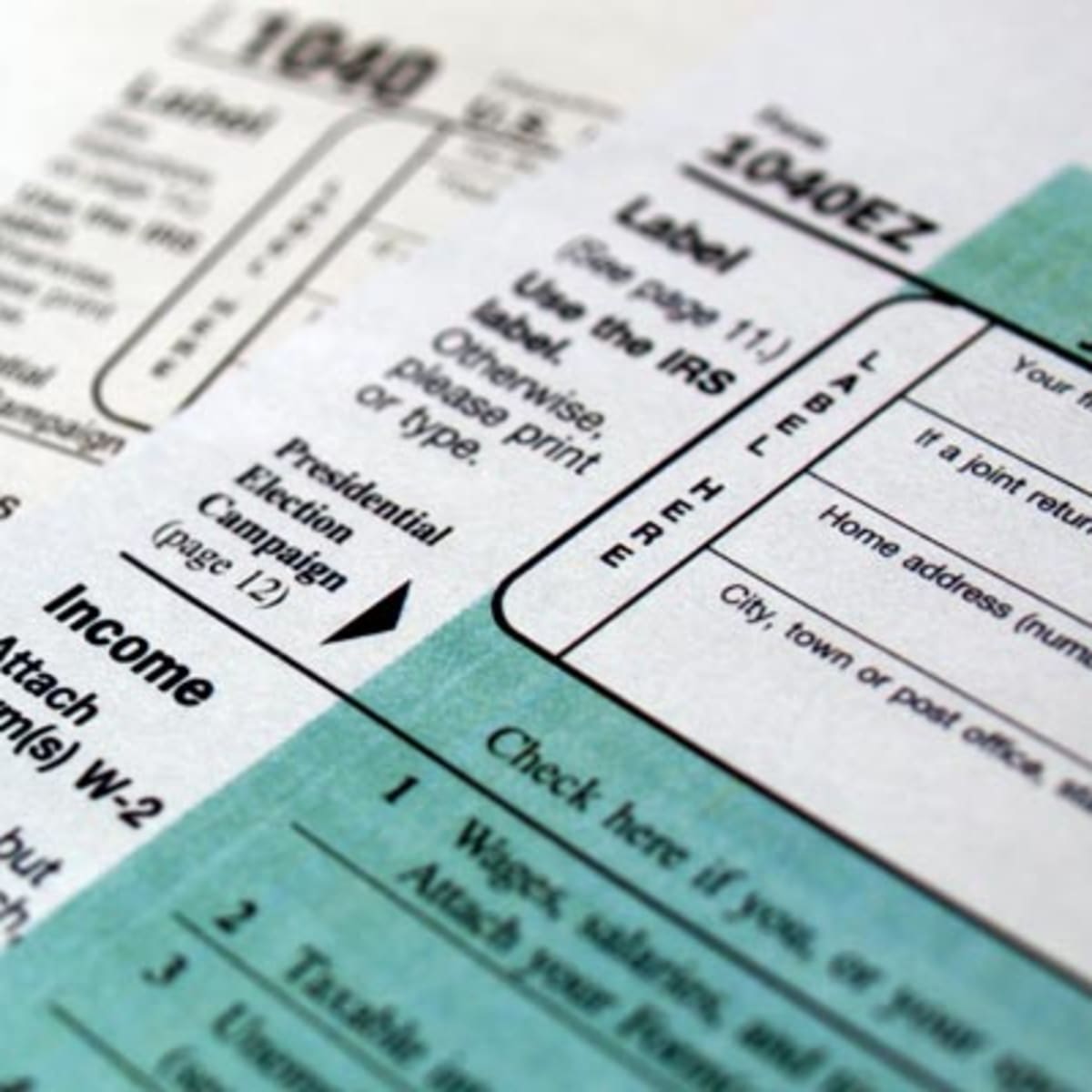More Articles
- Lottery Losses On Tax Return
- Report Gambling Losses On Tax Return
- Capital Losses On Tax Return
- Stock Losses On Tax Return
- Gambling Losses On Tax Return
Both cash and the value of prizes are considered 'other income' on your Form 1040.If you score big, you might even receive a Form W-2G reporting your winnings. The tax code requires institutions that offer gambling to issue Forms W-2G if you win. $600 or more on a horse race (if the win pays at least 300 times the wager amount). You can't reduce your gambling winnings ($500) by your gambling losses ($400) and only report the difference ($100) as income. If you itemize, you can claim a $400 deduction for your losses, but.
If you had a successful night at the slots or poker tables, you're going to have to share some of the lucky proceeds with Uncle Sam. The Internal Revenue Service generally requires that you report your gambling winnings and losses separately when you file your taxes rather than combining the two amounts.
- Generally speaking, though, gambling losses are tax deductible only to the extent of gambling winnings. However, the deduction for those losses must be included with 'itemized' deductions. Losses are reported on the Schedule A (Form 1040), Itemized Deductions.
- The IRS allows you to claim your gambling losses as a deduction, so long as you don't claim more than you won. Here's what that looks like: Let's say you win $2,000 and lose $200. You'd report $2,000 of the winnings as income and then deduct $200 on Schedule A (the form for itemized deductions).

Record Keeping
As you gamble during the year, you need to keep records of your winnings and losses so that you can support whatever figures you report on your taxes. The IRS permits you to use per-session recording, which means that instead of recording whether you won or lost each time you pull the slot machine, you can simply record your total for the session. Your records should include the date and type of gambling, where you gambled and if you gambled with anyone else, such as a home poker game. If you win more than $600, you should receive a Form W-2G from the casino.
Taxable Winnings
When figuring your gambling winnings, only include the winnings from each session rather than using losses to offset your gains. You have to include gambling winnings even if you didn't receive a Form W-2G from the casino. For example, if you gambled six times during the year, winning $100, $3,000, $4,000 and $6,000 but losing $5,000 and $2,000, your gambling winnings for the year are $13,100. This amount gets reported on line 21 of your Form 1040 tax return.
Gambling Losses
To claim your gambling losses, you have to itemize your deductions. Gambling losses are a miscellaneous deduction, but -- unlike some other miscellaneous deductions -- you can deduct the entire loss. The deduction goes on line 28 of Schedule A and you have to note that the deduction is for gambling losses. For example, if you lost $5,000 on one occasion and $7,000 on another, your total deduction is $12,000.
Gambling Loss Limitation
You can't deduct more in gambling losses than you have in gambling winnings for the year. For example, suppose you reported $13,000 in gambling winnings on Line 21 of Form 1040. Even if you lost $100,000 that year, your gambling loss deduction is limited to $13,000. Worse, you aren't allowed to carry forward the excess, so if you had $87,000 in losses you couldn't deduct last year, you can't use that to offset the gambling income from the current year.
- tax forms image by Chad McDermott from Fotolia.com
Read More:
How Do Regular Gamblers Handle IRS?
Regular gamblers, gamers, off-track betters and wagers all take losses. No matter whether they file a tax return, get audited, have a tax lien, or try setting up an installment agreement, they usually get a raw deal from IRS about their gambling losses.
All gambling losses should be deducted to reduce tax! Let's start there.


Here is the general rule: Gambling winnings are taxable. Losses may or may not be deductible. Even if the player netted a loss, her winnings are not exempt. Gambling wins are not even exempt at a function promoted by a tax-exempt organization!
Winnings might not be tax-exempt. But only profits – winnings minus losses, should be taxed.
Generally speaking, though, gambling losses are tax deductible only to the extent of gambling winnings. However, the deduction for those losses must be included with 'itemized' deductions. Losses are reported on the Schedule A (Form 1040), Itemized Deductions. But if you don't itemize, you cannot deduct those losses. Meanwhile, you still must report all of your winnings as taxable income. Raw deal.
- Obviously, this itemized rule for regular gamblers favors the IRS. Players tend to lose some of the tax break on their costs of earning gambling income. This is because:
Not all gamblers itemize their deductions. Those who don't receive no tax break for their net losses; and - Deductions for any year's losses cannot be greater than the winnings from year-to-year.
Still, all gamer's get taxed tax on all the income won during that year.
Lottery Losses On Tax Return

Record Keeping
As you gamble during the year, you need to keep records of your winnings and losses so that you can support whatever figures you report on your taxes. The IRS permits you to use per-session recording, which means that instead of recording whether you won or lost each time you pull the slot machine, you can simply record your total for the session. Your records should include the date and type of gambling, where you gambled and if you gambled with anyone else, such as a home poker game. If you win more than $600, you should receive a Form W-2G from the casino.
Taxable Winnings
When figuring your gambling winnings, only include the winnings from each session rather than using losses to offset your gains. You have to include gambling winnings even if you didn't receive a Form W-2G from the casino. For example, if you gambled six times during the year, winning $100, $3,000, $4,000 and $6,000 but losing $5,000 and $2,000, your gambling winnings for the year are $13,100. This amount gets reported on line 21 of your Form 1040 tax return.
Gambling Losses
To claim your gambling losses, you have to itemize your deductions. Gambling losses are a miscellaneous deduction, but -- unlike some other miscellaneous deductions -- you can deduct the entire loss. The deduction goes on line 28 of Schedule A and you have to note that the deduction is for gambling losses. For example, if you lost $5,000 on one occasion and $7,000 on another, your total deduction is $12,000.
Gambling Loss Limitation
You can't deduct more in gambling losses than you have in gambling winnings for the year. For example, suppose you reported $13,000 in gambling winnings on Line 21 of Form 1040. Even if you lost $100,000 that year, your gambling loss deduction is limited to $13,000. Worse, you aren't allowed to carry forward the excess, so if you had $87,000 in losses you couldn't deduct last year, you can't use that to offset the gambling income from the current year.
- tax forms image by Chad McDermott from Fotolia.com
Read More:
How Do Regular Gamblers Handle IRS?
Regular gamblers, gamers, off-track betters and wagers all take losses. No matter whether they file a tax return, get audited, have a tax lien, or try setting up an installment agreement, they usually get a raw deal from IRS about their gambling losses.
All gambling losses should be deducted to reduce tax! Let's start there.
Here is the general rule: Gambling winnings are taxable. Losses may or may not be deductible. Even if the player netted a loss, her winnings are not exempt. Gambling wins are not even exempt at a function promoted by a tax-exempt organization!
Winnings might not be tax-exempt. But only profits – winnings minus losses, should be taxed.
Generally speaking, though, gambling losses are tax deductible only to the extent of gambling winnings. However, the deduction for those losses must be included with 'itemized' deductions. Losses are reported on the Schedule A (Form 1040), Itemized Deductions. But if you don't itemize, you cannot deduct those losses. Meanwhile, you still must report all of your winnings as taxable income. Raw deal.
- Obviously, this itemized rule for regular gamblers favors the IRS. Players tend to lose some of the tax break on their costs of earning gambling income. This is because:
Not all gamblers itemize their deductions. Those who don't receive no tax break for their net losses; and - Deductions for any year's losses cannot be greater than the winnings from year-to-year.
Still, all gamer's get taxed tax on all the income won during that year.
Lottery Losses On Tax Return
(We all know that most people have net losses, not wins. How do we know? Because these wonderful, beautiful, lavish casinos are NOT built by players' net winnings, but by their losses.)
Report Gambling Losses On Tax Return
But I Heard This Law Changed!
As we understand, in 2018 the law ceased to require a 'floor' of 2% of adjusted gross income, before losses could be deducted. Translation: Before 2018, you could only deduct loss amounts greater than 2% of your income. So before 2018, you would 'lose' more of your deductible losses with this 2% rule.
So yes, the law changed, temporarily until 2025. You get to deduct that other 2%, but only still if you itemize. And you're still limited to deduct no more than your winnings. Even with the tax change since 2018, this gambling loss calculation is kind of one-sided, definitely in favor of the government.
Do I Have to Prove My Losses? Or my Winnings?
Yes, you should be able to prove your winnings and losses. Keep constant track of both. Every gambler should actually want to keep track of every dollar won, and lost. Without proof, you have the risk of overstating your income (and therefore tax). You also run the risk of understating your taxable income, which becomes a big problem in the case of IRS tax audits.
If an IRS auditor finds a substantial understatement of your tax, based on misreporting your gambling net income or loss, you may be fined a penalty. 'Substantial' here can mean a $5,000 or greater understatement of your tax.
The Internal Revenue Code, Section 6662 gives a penalty equal to 20% of the tax difference. Plus, you also pay interest. There are also deeper punishments for intentionally understated gambling income. They could subject a person to a Civil Fraud Penalty of 75% of the tax, under IRC §6663. Worse, imprisonment is also possible, under Section §7206 of this Tax Code.
Of course, these penalties apply to understated income of any sort.
All that considered, it's just so much easier to keep careful, consistent track.
What's the Best Way to Keep Track of Gambling Winnings?
IRS exam agents will ask for more detail than the average gambler can provide. IRS 'suggests' keeping a diary or similar record of your gambling activities. At a minimum, your records should include the dates and types of specific wagers or gambling activities. But maybe also consider writing down your winnings, ATM withdrawals, plus the name and location and name of your casino or betting venue.
Capital Losses On Tax Return
There's a different standard for 'Professional Gamblers.'
IRS auditors even ask who were the people gambling or entertaining with you. They suggest documenting that information also. IRS will definitely follow-up review of their tax returns as well. This step tends to only benefit the government. As you might imagine, reporting your gambling buddies to IRS would quickly shorten your list of friends.
Of course, all of this is difficult to do when you're on a roll, when you're up and down, or when you can't climb back out of the hole. Plus, there's alcohol. It's just difficult to journal. And IRS knows this.
But there is an easier way to track my gambling, for tax purposes. If you are not able to keep a diary of your gambling transactions, use third-party documents
- Casinos offer 'loyalty reward' cards and memberships. Use those cards to track all buy-ins, as well as winnings. You can request an Activities Statement for all activity recorded by that card swiped. This includes detail of all gambling dates. times. amounts transacted, plus descriptions of those transactions. They even include your account balances, wins and losses information, and sometimes time spent gambling online. This is extremely helpful information.
- Your gaming venue may even provide other services, to help you better keep up with your progress. Ask. And use them.
- Whenever possible, use plastic cards, not cash. Your bank and card carriers will track your cash-out and expenses. By themselves, they prove some expense. But paired with the Activity Statements (mentioned above), these are powerful support for you.
- Of course, casinos will issue a Form W-2G, whenever taxes are withheld. Generally, if you win more than $5,000 on a wager, and the payout is 300 times or more the bet, the casino or gaming venue must withhold 24% of your winnings for income taxes. At tax time, this helps too.
- These same rules apply for state lotteries. If you play the lottery, setup a small 'cash card' for your tickets. Make sure that card issues a statement of your transactions. Use that card for nothing else, except for your lotto tickets. Seriously, not cigarettes, not beer, not gasoline – nothing else. Put your winnings in that account, too. Or try, anyway.
Stock Losses On Tax Return
Gamblers win and lose. But only gambling profits – winnings minus losses – should be taxable. Remember that.
Gambling Losses On Tax Return
J Anton Collins is a tax lawyer and retired CPA, formerly with IRS. He is a regular blogger for Tax Law Offices | Business Tax Settlement Corp.

